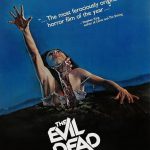Verónica (2017)
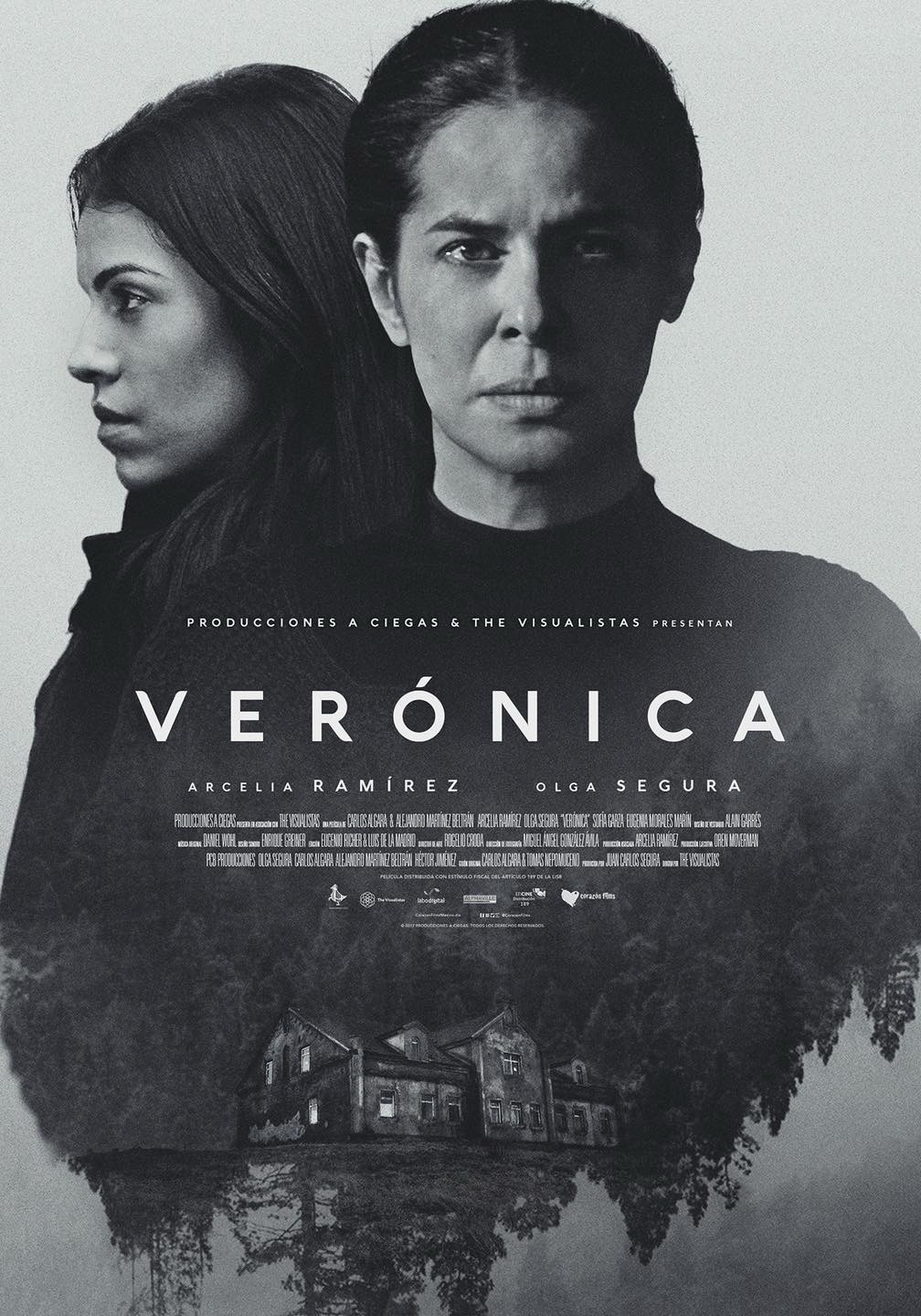
Verónica (2017), directed by Paco Plaza, is a Spanish supernatural horror film that has garnered attention for its chilling atmosphere and its claim to be based on a real, unsolved paranormal case in Madrid. Plaza, co-director of the [Rec] series, brings his knack for tension-building and jump scares into a more traditional, slow-burn horror narrative. While the film doesn’t necessarily break new ground in the genre, it’s an effectively creepy and emotionally resonant tale.
Suggested videos for you:
Plot and Structure
Set in 1991, the film follows Verónica (Sandra Escacena), a teenage girl who, after playing with a Ouija board during a solar eclipse, begins experiencing terrifying supernatural events. Verónica, who is responsible for caring for her younger siblings in the absence of their overworked mother, becomes the target of a malevolent entity that gradually invades her home and psyche.
The plot unfolds in a linear fashion, with Plaza slowly ramping up the tension as the paranormal occurrences become more frequent and intense. The film balances scenes of Verónica’s everyday life—managing school, her siblings, and the strained relationship with her mother—with increasingly unsettling supernatural events. The pacing is methodical, and while the first half may feel slow to some viewers, it helps build a grounded emotional connection with Verónica and her family, making the later horror sequences more impactful.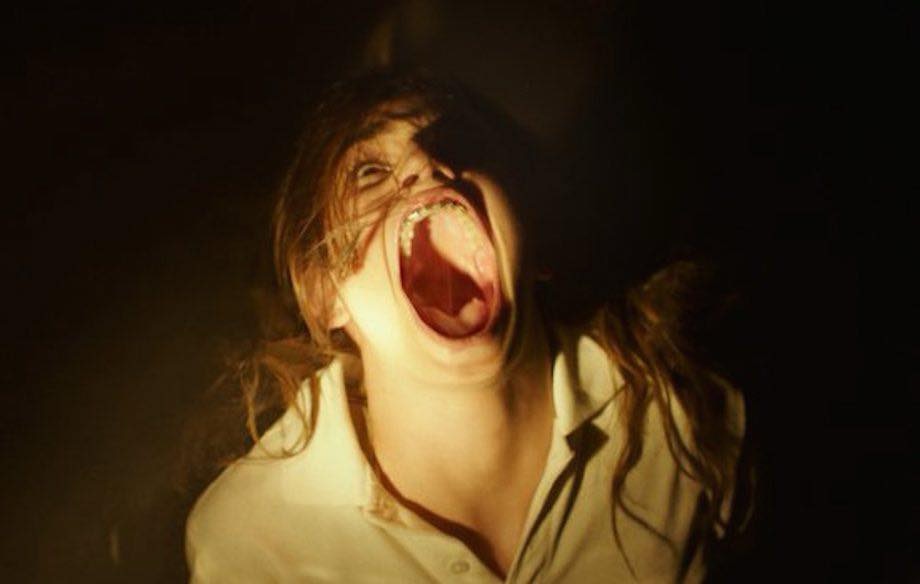
Atmosphere and Cinematography
The film excels in creating an oppressive and foreboding atmosphere. Pablo Rosso’s cinematography is highly effective in using shadow and light to evoke dread, often framing the haunting in seemingly ordinary settings like the family’s cramped apartment. The supernatural manifestations are often subtle at first—flickering lights, eerie sounds—before escalating into more overt and terrifying encounters.
Plaza also employs clever camera angles and long takes to create suspense, making the viewer feel trapped in Verónica’s increasingly claustrophobic world. The apartment, once a safe haven for Verónica and her siblings, becomes a labyrinth of terror, with each room potentially hiding something malevolent.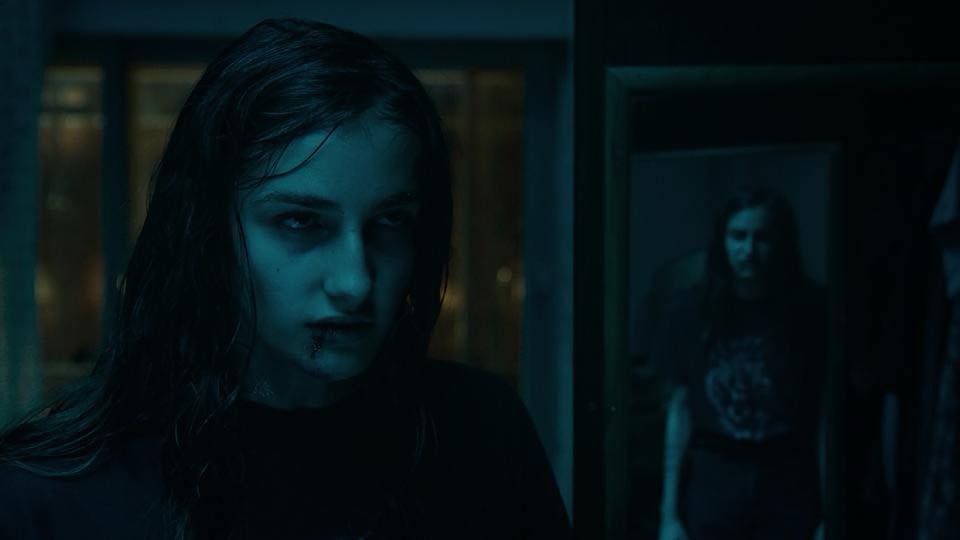
Themes and Emotional Depth
Beyond the supernatural, Verónica deals with themes of grief, adolescence, and familial responsibility. Verónica’s isolation, both emotionally and physically, is central to the film. She is left to care for her younger siblings while her mother works long hours, and she has no one to turn to as the hauntings intensify. This emotional weight adds depth to the story, making it more than just a simple haunted-house movie.
The film also touches on the dangers of dabbling in the occult without fully understanding the consequences. The use of a Ouija board as a gateway to horror is a well-worn trope in horror, but here, it’s tied to Verónica’s longing for answers about her deceased father. The combination of grief and youthful curiosity makes her vulnerability to the supernatural even more tragic.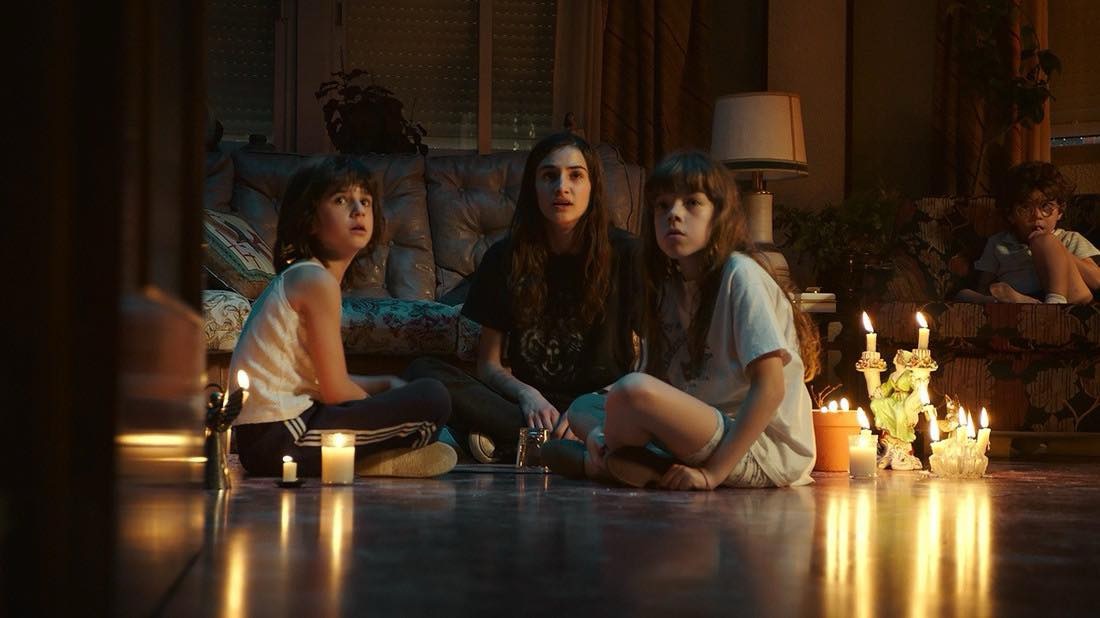
Performances
Sandra Escacena delivers a standout performance as Verónica, grounding the film in a believable emotional core. Her portrayal of a teenager grappling with the supernatural while juggling the real-world pressures of family and adolescence is compelling, making the audience empathize with her plight. The child actors who play her younger siblings are also convincing, helping to enhance the family dynamic that is central to the film’s emotional resonance.
The supporting cast, including Ana Torrent as Verónica’s mother, adds to the sense of isolation and abandonment that Verónica feels. However, the film is almost entirely carried by Escacena’s strong lead performance.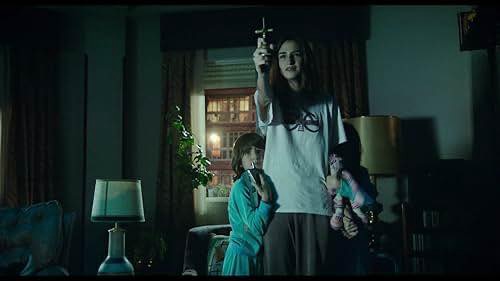
Scares and Tone
Verónica effectively balances psychological tension with more traditional horror scares. While the film doesn’t rely heavily on jump scares, it uses them sparingly and effectively. The true strength of the film lies in its ability to sustain an atmosphere of dread, with the supernatural elements slowly and unnervingly escalating over time.
The entity haunting Verónica is not fully explained, which adds to the horror—ambiguity in its nature makes it feel more dangerous and unknowable. The film’s final act is a nerve-wracking culmination of the tension built throughout, with a tragic and emotionally charged conclusion.
Final Thoughts
Verónica is a well-crafted supernatural horror film that, while not revolutionary in its premise, excels in atmosphere, performance, and emotional depth. Paco Plaza demonstrates a strong command of the genre, delivering a film that is both unsettling and poignant. Its slow-burn approach may not appeal to fans looking for more immediate or visceral horror, but for those who appreciate a grounded, emotionally driven ghost story, Verónica offers a haunting and memorable experience.




